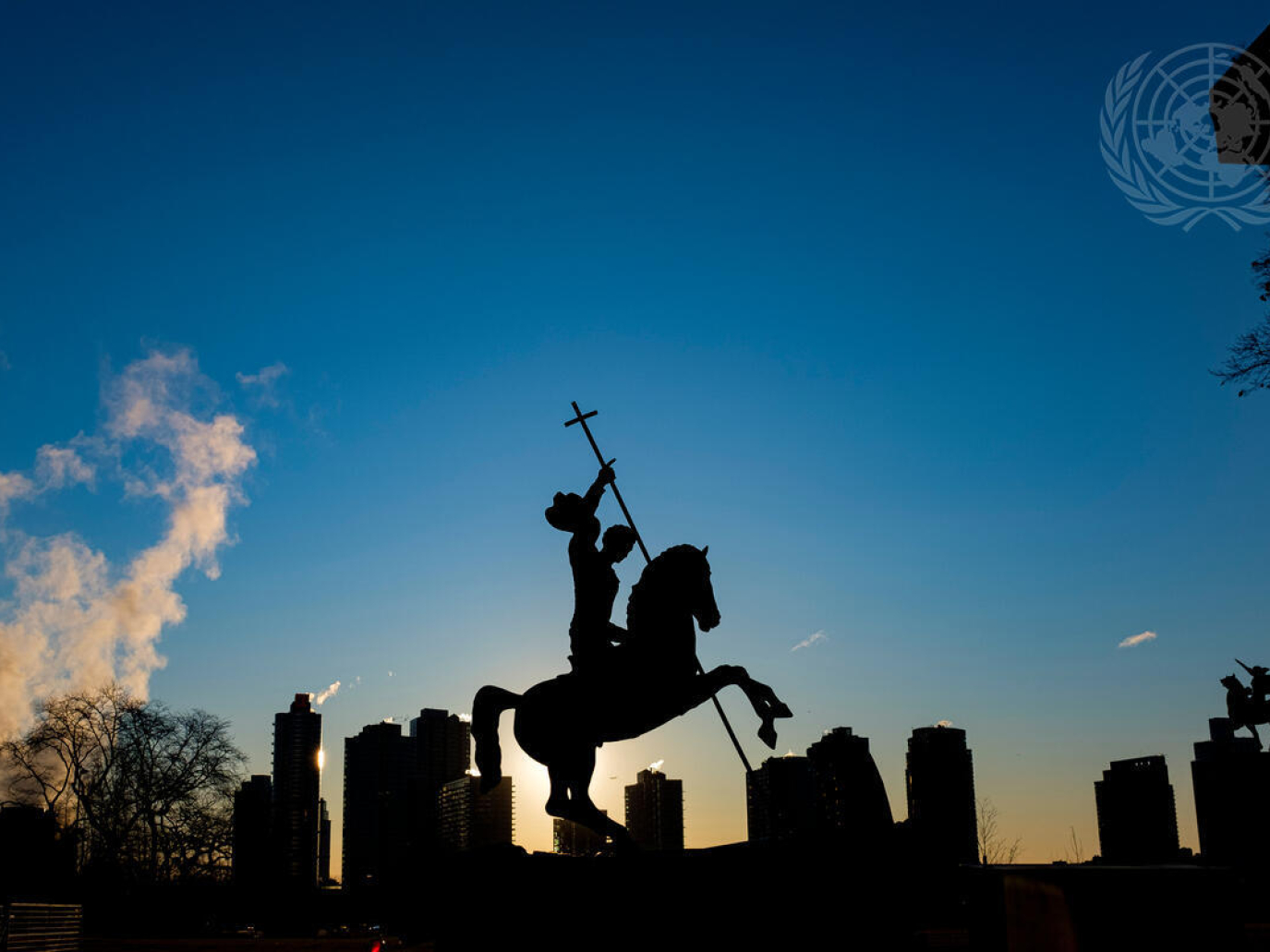
This article is also available in Italian / Questo articolo è disponibile anche italiano
“The Trump presidency is seriously destabilising the UN system, and many heads of state are following its lead. There is widespread concern over job cuts, relocations, and shifts in political influence across numerous UN organisations and agencies”. These words were spoken by a long-standing diplomat who chose to remain anonymous due to his professional position. However, his view is shared by at least half a dozen interviewees from UN bodies such as the WMO, FAO, UNEP, and the UN Global Compact.
The United States is losing its traditional hold on the largest intergovernmental organisation in the world, which it has supported with substantial funding since its foundation, hosting its headquarters at the famous skyscraper in New York.
The Trump administration’s decision to enforce drastic budget cuts on the UN Secretariat and its many agencies has triggered a rethink — long overdue, some would argue — about the structure and budgets of the UN world
This year marks the eightieth anniversary of the Organisation that has guided the planet towards a more sustainable development, reduced hunger and poverty, promoted economic and social innovation, supported peace (30 disarmament treaties signed) and, as Secretary-General António Guterres himself recalls, “actively worked to prevent World War III”.
But there will be little room for celebration. These are difficult times. For Guterres, preserving UN multilateralism requires making UN agencies and programmes more efficient. “The liquidity crisis we now face is not new. But today’s financial and political situation adds even greater urgency to our efforts. We face real threats to the very fabric, values, principles, and sustainability of multilateralism,” he stated on the 12th of May, launching the UN80 Initiative aimed at restructuring and streamlining the UN behemoth.
UN80, the challenging reform
Though details remain elusive, the reform is said to rest on three pillars, according to documents reviewed: swiftly identifying efficiencies and improvements within existing agreements; reviewing the implementation of all mandates given by member states; and initiating a structural reorganisation and programme realignment across the entire United Nations system.
Many rumours are going around. According to Ian Richards, there is an option whereby “the operational aspects of the World Food Programme, the United Nations Children's Fund, the World Health Organization (WHO) and the UN Refugee Agency could be merged into a single humanitarian entity.” There is also talk of merging the WTO, the World Trade Organization, and UNDP, the UN Development Programme; of creating a single convention combining UNFCCC, CBD and UNCCD, that is, putting together the climate, biodiversity and desertification conventions; and of merging UNEP and UNDP (Environmental and development programme) into a single agency with a broad mandate.
What is certain is that thousands of jobs in the cooperation sector will be cut, budgets reduced, and significant relocations will occur, especially from expensive hubs such as New York, Geneva, and Rome.
FAO: the first signs of reform
Already in April, during the 177th session of FAO, Secretary-General Qu Dongyu announced efforts “to rapidly manage the situation following decisions by the United States government to terminate 106 projects worth a total of 384 million dollars, affecting around 1,240 people.”
Voluntary contributions in the first three months of 2024 are significantly lower than those of the previous three years, marking a new record low. Although FAO has been working since late 2024 on a strategy to diversify financial resources, funding remains insufficient to carry out programmes aligned with the SDGs.
Hans Hoogeveen, independent chair of the FAO Council, said: “We need to build bridges and find compromises to succeed.” Yet tension is tangible in the corridors of Rome, with everyone awaiting the decisions that will be taken in New York.
A new geography of UN agencies and programmes?
With the United States closing the purse strings, numerous other actors stand ready to open theirs, eager to attract the power and economic benefits of the prestigious UN offices. “The Rwandan government is prepared to offer offices and essential services and actively collaborate in developing a long-term UN campus in the heart of Kigali city,” Rwanda’s Prime Minister Édouard Ngirente wrote in a private letter dated 15 May to UN Secretary-General António Guterres, obtained by Devex magazine. “Our proposal also includes a comprehensive package of privileges, immunities, and tax exemptions following UN standards.”
Rwanda is just one of many countries that have, for some time, increased funding and influence within UN agencies for a variety of interests. According to two sources, Saudi Arabia has long expressed keen interest in several agencies, including the World Meteorological Organization (based in Geneva) and UNCCD, the Convention to Combat Desertification, to which it has made substantial donations.
Other nations such as Austria, Kenya, Germany, Turkey, and Qatar have entered the race to host UN agencies, offering lower rents, subsidies, and other incentives to ease an unprecedented financial crisis. Germany would like to strengthen the Bonn offices, which already host the UNFCCC, the climate change convention. At a recent conference, which took place between the 14th and 15th of May, the German government distributed a brochure highlighting the virtues of expanding the United Nations' presence in the city of North Rhine-Westphalia.
One of the places likely to benefit most from relocation is Nairobi. The UN already has a large office in the Kenyan capital, hosting UNDP and UN-Habitat. The International Trade Centre (ITC), based in Geneva, is preparing to transfer 50% of its back-office staff to Nairobi, while the UN Refugee Agency has expanded its presence there. “Nairobi has a huge campus, enormous capacity to expand its space and offerings, and competitive costs,” Guterres remarked during the presentation of the UN80 reform.
The showdown in Seville and New York
So, who will step forward to champion development, human rights, and peace, seizing the mantle from the United States in the league of nations? Little was said at Finance for Development (FfD4), held from the 30th of June to the 3rd of July in Seville, a recurring summit aimed at finding economic solutions to development issues.
Many analysts believe China will fill the void left by the US State Department, securing a medium-term diplomatic advantage, particularly in countries where it already wields significant commercial and political influence and where it could play a central role. From numerous nations comes a call for reform of the Security Council veto mechanism, greater representation for the Global South, increased transparency, and improved efficiency within the UN Secretariat.
Ideas and proposals that will be brought together at UNGA80, the General Assembly that next September will present the UN80 reform plan, which is essential for assessing the new global political landscape and the state of health of the old, glorious United Nations.
Cover: the sculpture Good Defeats Evil in the ONU Headquarter © ONU



